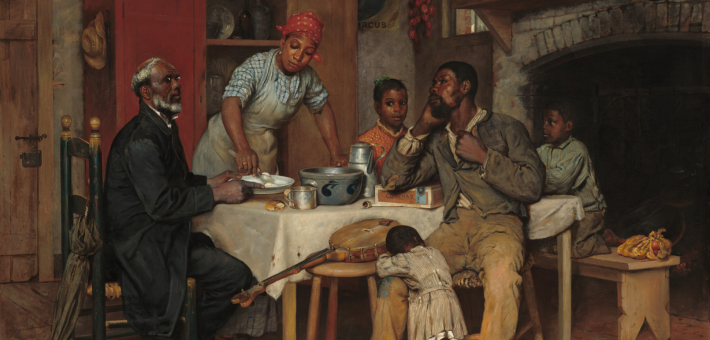Commentary on Psalm 89:1-4, 15-18
The assigned verses are a portion of a much larger psalm that concludes book three of the psalter.1
The context of both the verses and the psalm are interpretively significant.
Verses 1 to 4 introduce two themes that will be further expanded in the psalm. Verses 1-2 celebrate the LORD’s steadfast love, linking divine faithfulness to the solidity of the heavens and thus to the created order (see Psalm 34:4-9). Verses 3-5 introduce the LORD’s covenant with David, a relationship that is declared to be eternal.
Verses 5-18 return to the subject of the LORD’s majestic rule over the created universe. The LORD rules not only over the heavenly council (verses 5-8) but also over the raging forces of the chaos waters and the sea monster Rahab. The psalmist asserts the LORD’s sovereignty over the heavens and the earth in verses 11 to 13 and over the worshiping congregation in verses 14 to 18.
The preacher may want to include verse 14 in the reading on grounds that the righteousness and justice of the LORD mentioned in verse 14 serves as the foundation of the congregational exultation (verse 18). There is, moreover, an implied link between the divine ability to control the more unruly aspects of creation celebrated in verses 5 to 13 with the congregation’s security (verses 17-18).
Verses 19 to 37 revisit the subject of the LORD’s covenant with David. The LORD established a perpetual covenant with David (verses 19-21) for which reason David and his line can be certain of protection from all foes (verses 22-24). David’s intimate relationship to the LORD as son and as God’s “firstborn” (verses 26-27) was such that David even enjoyed aspects of the LORD’s regal authority over chaos (verse 25).
Verses 28 to 37 underscore the declarations of verses 3 and 4. A reference to the eternal quality of the relationship brackets this section; “forever” (Hebrew le’olam) appear in verses 28 and 37 (see verse 4). The promises to the Davidic line are guaranteed by the LORD’s own oath and holiness (verse 35). Not even sin could undermine the covenant (verses 30-34) which was, in any case, as enduring as the creation (verses 36-37).
The psalm pivots dramatically at verse 38. With the exception of the unoriginal, appended verse 52, the balance of the psalm consists of unrelieved lament. The circumstances are clear. The LORD’s oath notwithstanding, the king’s enemies have outwitted and humbled him (verse 22). Rather than the LORD crushing the king’s foes (verse 23), the reverse has transpired; the LORD oversaw a dramatic military defeat of David’s descendent, wresting the scepter from his hand and leaving him humiliated (verses 40-45).
The psalmist plaintive questions, powerfully expressed under any circumstances, are particularly poignant following the extended praise in verses 1 to 37. This is, after all, the sovereign regent of all creation who has sworn, in the strongest conceivable terms, that the divine promises to David and his descendants will never, under any circumstance whatsoever, be revoked. What then, could the LORD possibly say to the question of verse 49 with its latent accusation:
LORD, where is your steadfast love of old,
which by your faithfulness you swore to David?
The problem cannot be that the LORD lacked the might to sustain the king. This is the God who rules over even the chaotic elements of nature. Nor could there be any mistake about the eternal, unconditional qualities of the covenant. So what excuse might the LORD possibly offer? What answer might the Almighty conceivably give?
The psalmist — whether he be the king or, as seems likely, someone speaking on his behalf — has no answers to these questions. The poet does not know how long the LORD will remain conspicuously absent (verse 46) or what has become of the covenant. And so the original poem ended simply with a plea that the LORD might remember the plight of the king, God’s anointed (verses 50-51). Indeed, the plea for the LORD to remember concludes this portion of the psalter and thus “closes the book.”
I suspect that the poet is not the only one left dazed and confused by the collapse of institutions and relationships that provided order, stability, and security. We have trusted the LORD of creation in whose arms the stars sway. Many Christian worshipers who “know the festal shout” (verse 15) — or the more subdued mainline Christian equivalents! — gladly join the faithful affirmations of verses 15 to 18. It is, therefore, all the more surprising when bodies fail, when marriages collapse, when the boss says you are being “let go,” when unanticipated change comes to a congregation, when churches are scandalized, or when a precious loved one dies — to name but a few of those sacred solids we assume are guaranteed by the strength and power of the LORD.
The preacher dare not offer facile explanations or answers for those who experience such “ambiguous loss.” The psalmist’s guidance is better: in our distress, whatever its shape, we implore the LORD to remember us in our anguish. In so doing, we place ourselves in good company. Another petitioner put it this way: “Jesus, remember me when you come into your kingdom.” (Luke 23:42). If we are not assured that our institutions or our relationships are eternal, we are promised this: Jesus the Christ remembers us in our darkness. Jesus holds before us the hope that resurrection and life will again be ours.
Notes:
1. Commentary first published on this site on June 29, 2014.


July 2, 2023